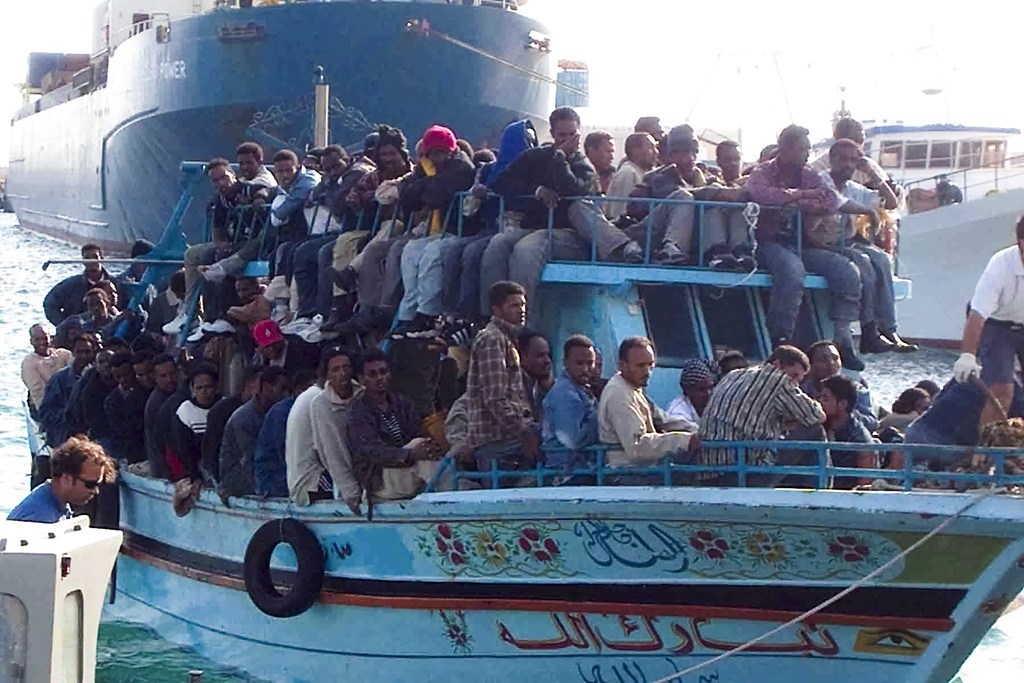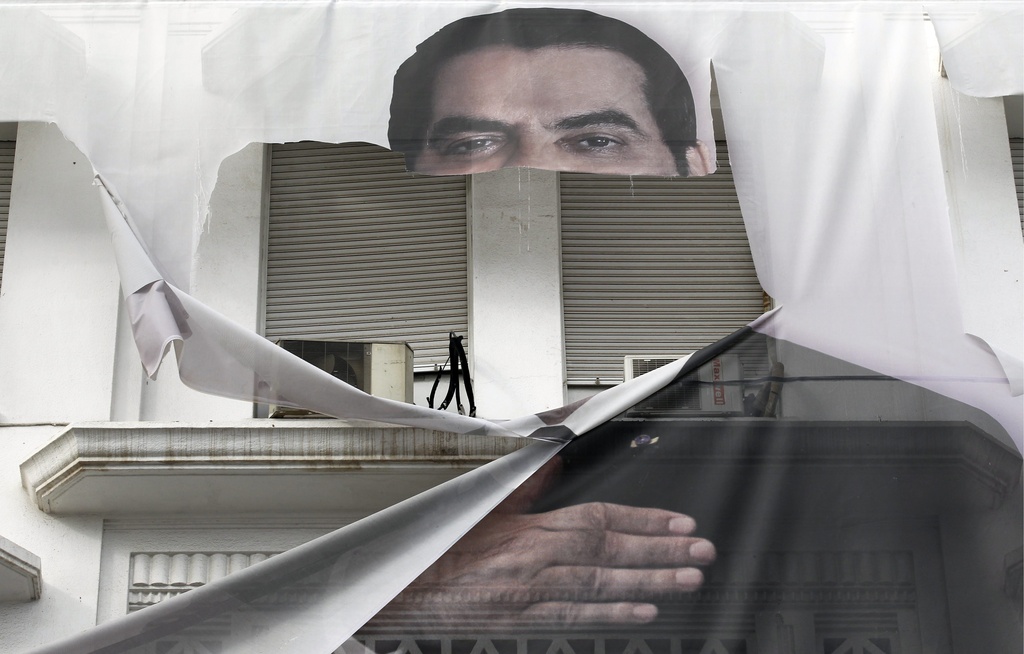Europe’s response to Arab Spring falls short

Western countries are failing the test in their response to the popular uprisings in the Arab world, according to Tunisian human rights campaigner Souhayr Belhassan.
Europe in particular needs to change its way of thinking about the Arab world, Belhassan tells swissinfo.ch.
The Tunisian opposition figure was invited to speak on Friday at the opening of the International Film Festival and Forum on Human Rights in Geneva.
Belhassan was the first woman president of the International Federation for Human Rights and witnessed the revolution in her own country.
swissinfo.ch: In a few days, the face of your country changed. What are the priorities now for Tunisia?
Souhayr Belhassan: The regime completely collapsed. But the network created by Zine al-Abedine Ben Ali and his entourage continues to infiltrate the whole system. We see it with the continuing corruption, the destruction of archives, and of the courts. Everything that could lead to revelations tomorrow is being destroyed.
Among the measures to be taken immediately, legal proceedings need to be brought against the ministers close to Ben Ali, including Abdallah Kallah [Senate president at the time of Ben Ali’s fall, minister of the interior from 1991 to 1995, who led a bloody repression, particularly against the Islamists]. At the moment they are under house arrest but that is not enough.
Respecting international treaties and declaring a general amnesty are very important steps but the figures who symbolise the old regime also have to be arrested. Without that public opinion will not be able to rally behind a national project.
swissinfo.ch: We saw in Algeria how the popular revolts of the 1980s were crushed. Young people also took to the street at that time, 40 new political parties were created, a multitude of new newspapers, but afterwards the price was 200,000 dead and 20,000 disappeared. What lessons should be drawn from the Algerian experience?
S. B. : The Algerian example works both ways. It is as valid for the secular democrats as for the Islamists. However, today we are not in an Algerian context, neither in Tunisia nor in Egypt. This is no longer 1988 but 2011. Fifteen years have passed between the two events. The Tunisian and Egyptian Islamists today do not have the same approach as the Algerians did then.
In rebuilding Egyptian and Tunisian societies, we know now how to deal with the Islamist element which does indeed exist. It must be given its place, but no more than its place. We do not share the same ideology but today we fight openly. In the past regimes relied on the argument that “we cannot liberalise or the Islamists will take power”. The spectre of Islamists taking over can no longer be used to frighten the people inside the country or in the West.
swissinfo.ch: In the West many voices claim that the current low profile of the Islamists is purely a product of the circumstances. Do you take this to be an outdated position?
S. B. : It’s not so much outdated but shows complete lack of intelligence and understanding about what is happening south of the Mediterranean today. Instead of encouraging democracies which are in the process of being established, Europe is withdrawing into itself because of its fear of Islamists and migrants. If the North continues to lack empathy, and insists on seeing only backward movement in the Arab-Muslim world, there’s a danger that the backlash could be very violent.
swissinfo.ch: In what way can the West change its view of the Arab world?
S. B. : Europe has to consider this very carefully. Does it really want to share the values of democracy and liberty or does it just want to rely on slogans which have proved their limitations at the moment of revolution? For the time being, Europe cultivates democracy inside its own area, but not for the populations outside Schengen. It preaches freedom of movement for goods and trade but not for people.
If Europe continues to be afraid of Islamists and immigrants, and to close its doors, we will not progress. It needs to stop thinking in such rigid terms. It must change the way it sees the Arab world.
For the moment, Europe is being cautious. When the European Union’s high representative for foreign affairs, Catherine Ashton, met the Egyptian authorities, she hardly came into contact with civil society. Europe has to see civil society as an autonomous party in any partnership.
The ninth International Film Festival and Forum on Human Rights takes place in Geneva at the Grütli Art Centre from March 4 to 13.
The opening evening was attended by Swiss President Micheline Calmy-Rey and the UN High Commissioner for Human Rights Navi Pillay. The event was dedicated to solidarity with the Tunisian, Egyptian and Iranian people, with the screening of the short film The Accordion, by Iranian filmmaker Jafar Panahi, currently behind bars in Iran.
Of the ten documentaries in competition at the festival, two are Swiss made – Impunity by Juan José Lozano and Hollman Morris and Debra Milke by J.F. and Gesenn Rosset.
Souhayr Belhassan was born in Tunisia in 1943.
She studied law at Tunis University and attended the Paris Institute of Political Studies.
A journalist for many years, she was Tunisian correspondent of the weekly Jeune Afrique and Reuters news agency.
Strongly committed to the defence of human rights, she was active in the Tunisian Human Rights League. In 2007 she was elected president of the International Federation for Human Rights.
(Translated from French by Clare O’Dea)

In compliance with the JTI standards
More: SWI swissinfo.ch certified by the Journalism Trust Initiative












You can find an overview of ongoing debates with our journalists here . Please join us!
If you want to start a conversation about a topic raised in this article or want to report factual errors, email us at english@swissinfo.ch.